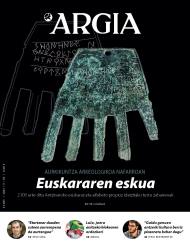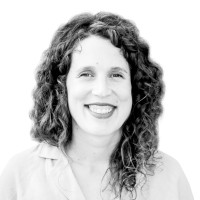“Women and everything related to our sexuality are not interested”
- Arantxa Masachs Villarino (Barcelona, 1987) is the promoter of the Entre Doules conference held at the end of November in Barcelona. In 2015, when she lived in Ecuador, a woman first told her the documents, and there she decided her future: to attend maternity.

First, how does the public system deal with maternity?
The public system does not serve maternity hospitals. Moreover, the system silences motherhood and mothers do not exist. There are scarce resources, spaces, concrete proposals and facilities to be a mother. We created it ourselves, ladies and gentlemen.
These deficiencies are covered, among others, by doulas. But what exactly is one?
This is a professional who attends maternity hospitals with respect, active listening and empathy.
How does it differ from what a psychologist or midwife can do?
The most striking difference is that doulas are not health workers. They may perform similar roles, such as communication skills or emotional attention. But you're not a psychologist, because your mission is not therapy, you're not a midwife, because sexual health is not your goal. Doulo physically and emotionally supports mothers and families throughout the maternity process. And, of course, when they ask us, we also provide both theoretical and practical information, and when necessary we direct women to other professionals.
When and how did you make the doula?
In 2016 I trained in Quito (Ecuador) through an intensive training promoted by Doula Caribe Internacional. Later I followed the training through reading through modules of Quiero Ser Doula and practice. In 2016 I attended several hospital deliveries in Ecuador, in 2017 in India and since 2018 in Barcelona.
The formation of the doula is not regulated. How?
Because it's not of interest to all people related to women and our sexuality. Not only that, but care, in particular, is not of interest to the capitalist system. Moreover, it is a new trade, although the functions are old.
What do you mean? .jpg)
Previously, a woman was pregnant or was being cared for in one way or another by the women around her. They prepared the food, massages, organized the logistics of the house… Now we do the douls, and you notice.
Moreover, there are those who see the work of doula as an intrusion. What do you think?
Surely this is seen by the lack of information, ignorance predominates. The figure of Doula occupies a space in recent years, is not regulated and its functions are not limited, causing confusion. That is why I believe that it is so important to regulate training and to limit functions and capacities as to extend the need for doula.
From 25 to 27 November you organized the Entre Doules Conference. How does the project come about?
It's a project I wanted to do for a long time. When I came to Barcelona in 2018, I contacted different people. This interaction seems inevitable to me: we live through hard processes and it is nice that we let ourselves be taken care of. In June I attended a woman and at that time I was clear that the time came for the delivery of the days.
What is the purpose of the quote?
The main challenge of the conference is to know each other and share reflections on the figure of the doula, combining present and future. I would also like to be able to start building the future of the trade, and if there are new editions it would be terrible.
What are the main needs today?
I would probably answer this question better after the days, where we will receive the answer. But I can anticipate that the fundamental needs are the regulation of the profession, the limitation of functions and skills, the extension of the doula figure, the creation of networks of collaboration and the recognition of our work.
The conference will take place in Catalonia. Can you continue streaming?
People from outside Catalonia have shown interest in the quotation, but due to the nature of the project and in order to meet its objectives they will not be able to participate virtually. What we are trying to do is for the douls who are going to participate in the day to open their houses for those who come outside Catalonia. Yes, I think it is an inescapable quote there and here, good news will be to organize a similar project in many places. Or, why not, have travelling days that create a strong community in the Spanish state to demand public policies that respond to our demands.
Support
"Linking up maternity hospitals. Sometimes as pregnancy, childbirth and postpartum, and in others as instructor yoga. Or as a lactation mentor, masseuse, karen companion, ritualistic or aromatherapy. I'd also like to be a midwife, and there I'm learning, but the road is long. Besides that, I'm Nisaruma's mother. I would like to convey to him the passion of the sexuality of women, mother earth and their cycles. Since 2016 I have cared for women there and here, specifically in Ecuador, India and Catalonia."
Until her final stage, the linguist Carmen Junyent claimed the possibility of dying in Catalan. When she died, she wrote her experiences with the health staff and asked to be published after her death. In this way, he wanted to emphasize that language is part of the treatment of... [+]



















